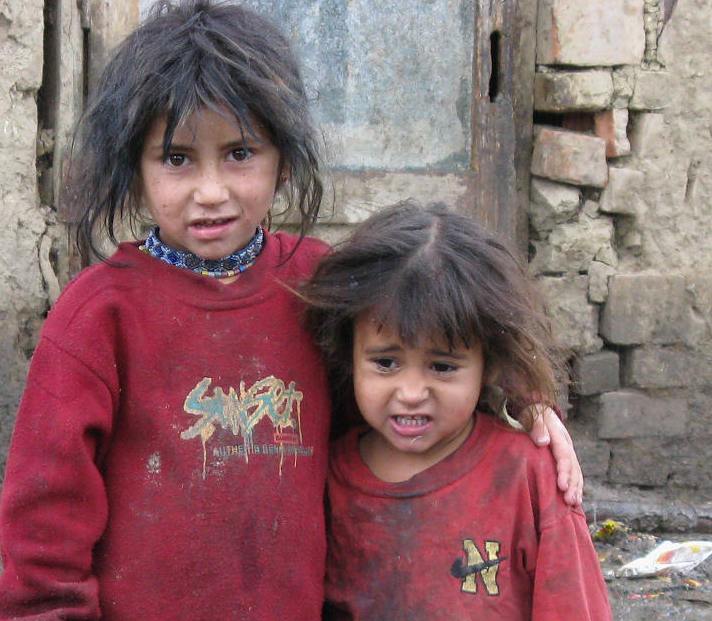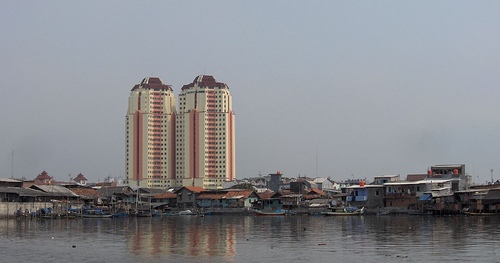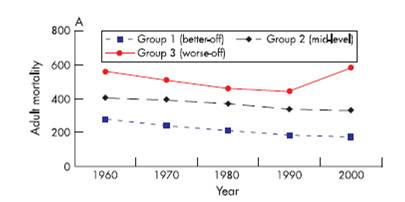|
FROM WHITE MAN'S BURDEN TO PEPS PROPOSAL
Glenn Firebaugh might be a lonely voice on the subject right now, but by the late 22nd century, the phenomenon that he identified becomes one of the driving forces leading to the creation of two human species: the d-humans and the Primals.
Naomi Aramovich, Primal rights activist, knew this well. In fact, she saw the PEPS proposal as the final stage in a centuries-long process of exploitation by the wealthier and more powerful groups . She described the rich-poor divide as becoming "vertical" rather than "horizontal", because a d-human in India was just like a d-human in the United States, but was utterly different from a Primal living just a few miles away.
Here's what she said in one of her outbursts to Harry Shields, in a section that isn't in Requiem of the Human Soul , but is part of the PEPS archive:
"The truth is that your PEPS proposal is merely the logical conclusion of hundreds of years of hypocrisy enunciated by the developed world as it conquered, eviscerated and destroyed the economies, cultures and social structures of what were once called the "colonies" and then became known euphemistically as the "developing countries".

"When the slave trade was in full progress in the eighteenth and nineteenth centuries, social philosophers would talk about the "white man's burden" of spreading civilized values to the colonies. In the twentieth century, while extremist ideologies and artificial nationalism imposed by the departing imperialist powers devastated the so-called "developing world", people in your situation would talk about the progress of democracy and freedom through the world.
"Century after century, the poorest third of the world's population became more and more desperate, as the rest of the world left them behind. The gap between rich and poor became ever greater, as the world itself became more prosperous.
"In the twenty-first century, the same hypocrisy continued. Only this time, the buzz words were "globalization" and then the "historic justice" of the CARGI settlement. Meanwhile, even as development spread to all nations of the world, the poorest third of the world's population remained just as malnourished, impoverished, diseased and devastated.
"The rich-poor divide merely changed its dynamic and became vertical rather than horizontal. By this, I mean that in earlier centuries, the division between rich and poor could be more easily seen geographically, splitting the rich countries from the poor countries. By the twenty-first century, many of the once poor countries became developed and prosperous, and the split between rich and poor was increasingly a split of social strata within societies, rather than between societies.
DEFINING THE POOR OUT OF EXISTENCE
Naomi continues: "Why is this historical perspective important? Because it has laid the foundation for your current PEPS proposal. After the Great Global Wars, the world was still faced with the stark reality that a third of its population continued to live the most wretched lives. But at last, there was an approach that could justify this distinction. Now the gap could be redefined as d-human versus Primal, rather than rich versus poor. The moral responsibility for this terrible disparity became weakened, because now the terrible living conditions of the poor belonged to another race."
Naomi glared at Harry Shields. I had never seen her so filled with emotion. "The PEPS proposal," she fired at him, "is nothing other than a final step by the developed world to avoid the cost of dealing with the impoverished communities of the world, by defining them out of existence as the Primal species, and then eliminating the problem, not by improving their lives, but by simply eliminating them from the face of the earth. It's a genocide of the poor and helpless, to make the world a more pleasant place for the prosperous."
|




 "Some who worry about the ethics of cognitive enhancement point to the danger of creating two classes of human beings: those with access to enhancement technologies, and those who must make do with their natural capacities. And if the enhancements could be passed down the generations, the two classes might eventually become subspecies—the enhanced and the merely natural."
"Some who worry about the ethics of cognitive enhancement point to the danger of creating two classes of human beings: those with access to enhancement technologies, and those who must make do with their natural capacities. And if the enhancements could be passed down the generations, the two classes might eventually become subspecies—the enhanced and the merely natural."
 Sandel, M.J., (2004). 'The Case Against Perfection: What's wrong with designer children, bionic athletes, and genetic engineering'.
Sandel, M.J., (2004). 'The Case Against Perfection: What's wrong with designer children, bionic athletes, and genetic engineering'.


